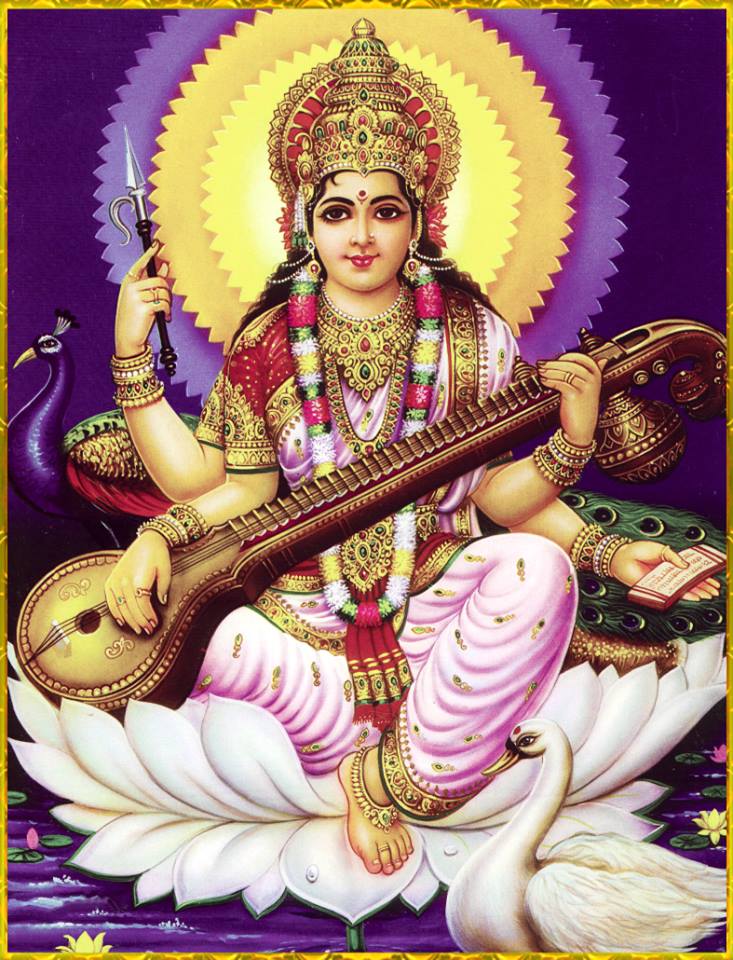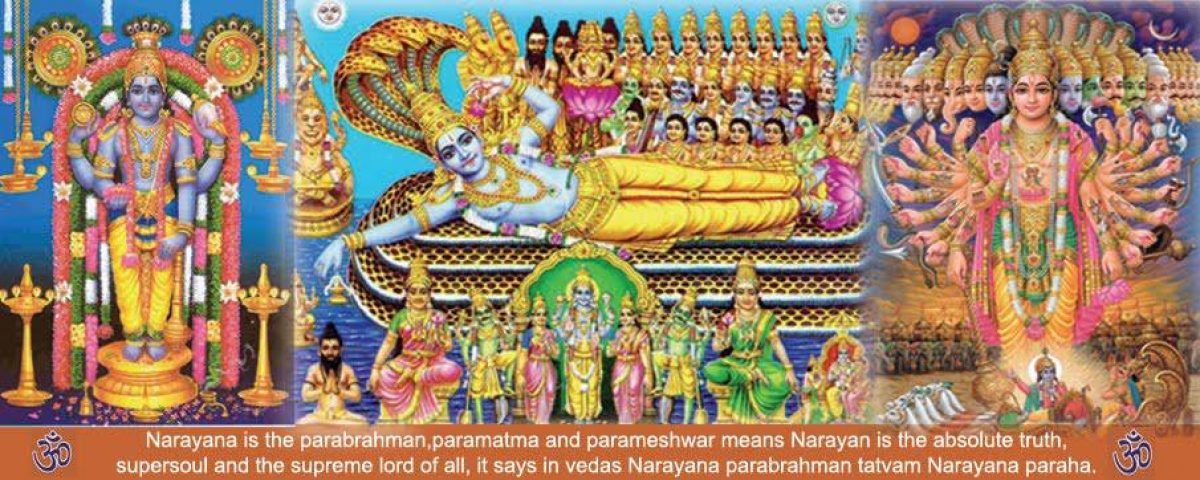
In a previous article, Hinduism was clearly defined as the religious & spiritual traditions that derive their authority from the Vedas. We unequivocally stated that followers of Hinduism at least theoretically revere the authority of the Veda, and that this is the distinguishing characteristic of Hinduism in contrast to other Indian-origin religions such as Buddhism or Jainism, as well as Semitic religions like Christianity or Islam. All religious terms require a clear and consistent definition in order to be useful in discussion, and Hinduism is no exception. By defining Hinduism with respect to its Vedic origins, one has a useful working definition which sets it apart from superficially similar but philosophically incompatible belief-systems.
Some modern Hindus may find this point troubling. They would argue that since religious scriptures are known to be authored by human beings, their scriptures will reflect their sectarian, ethnic, and cultural biases. Thus, accepting the historical definition of Hinduism as Vedic religion makes it just another sectarian religion, with all the exclusivism that sectarianism implies.
It is certainly a valid point that sectarianism can obscure truth, the seeking of which is the core of the religious experience. The entities to be known by religion, namely God, the souls, and the worlds attained after leaving the body are all suprasensory in nature, being not graspable by the default human senses. The authority of an authored text is always suspect because of the limitations of an author, foremost of which are his limited senses, his susceptibility to mislead and being mislead. An insider to a religious tradition could argue that the author is divinely inspired, or is God Himself, as is the case with most religions. However, this requires additional assumptions about the author’s credentials which are not themselves self-evident. Hence, the objective and non-sectarian authority of an authored religious text is always suspect.
A distinguish characteristic of the Veda, however, is that it has no author, human or divine. This is a cardinal principle of Vedānta, and it is broadly accepted by scholars representing various orthodox traditions. Not only is it the view point of Hindu scholars, but it follows literally from the Veda itself. The Ṛg Veda Saṃhitā directs one to praise the Deity with the eternal words of the Veda. [1] The Śvetāśvatara Upaniṣad speaks of the enlightenment of Brahmā and the gifting of the already-existing Veda at the beginning of the creation. [2] The Kaṭha Upaniṣad refers to itself as an eternal story. [3] These statements indicate that the Veda existed at all times and is therefore without beginning and eternal, from which the principle of apauruṣeyatva (unauthoredness) follows logically. A book that is authored has a definite beginning in time, and conversely something that is eternal, or without beginning, was never authored.
Now an objection may be raised that the Veda had an author or authors, but that he/they deliberately omitted any reference to himself/themselves in order to mislead people into thinking that the Veda is author-less, and hence authoritative. There are several reasons why this objection is illogical. First, we do not normally see in human nature that writers create great works of literary value and then neglect to take credit for their work. Sometimes, a writer may use a pen-name to make his contributions anonymous, but in such cases it is still clear that the work was authored by someone. Second, the Veda was always known as an un-authored body of literature by ancient Hindus. There was no tradition, Hindu or otherwise in which the Veda was thought of as authored, refuting the idea that they once had an author whose identity was simply lost in time. Finally, there are well-regarded Sanskrit literatures in the Hindu canon that are well known to be authored. The Mahābhārata, which extols itself as the fifth veda, is well-known to be the authored work of Śrī Vedavyāsa, and the Rāmāyaṇa, which enjoys similar praise, is known to be the authored work of Śrī Vālmīki. Why did these sages not omit their names and try to pass their works off as un-authored? Thus, the burden of proof is on those who assert authorship to provide evidence for their claim.
Yet another objection may be raised that the Ṛṣis associated with the various portions of the Veda are actually their authors. This objection is also not valid for the following reasons. First, if the Veda intended for us to believe that the Ṛṣis were their authors, then they would contradict themselves when they describe themselves as beginning-less, since authored texts have a beginning in time. Second, the tradition does not remember the Ṛṣis as authors, but rather as seers of the truth.
‘If they were composed by the seers they (the latter) would be called “Mantra-kartas” which means “those who ‘created’ the Mantras”. But as a matter of fact, the rsis are called “Mantra-drastas”, those who “saw ” them. [4]
These objections would also refute the idea that God is author of the Veda.
It is not at all unreasonable to postulate the existence of un-authored religious scripture. For example, Isaac Newton’s three laws of motion were only formulated in the 17th-18th centuries, yet they always existed. No one argues that they did not exist prior to Newton’s birth. Newton was not the author of, nor did he create, the laws of motion. He merely “discovered” them, or in other words he came to understand the relationships which governed motion and published the knowledge for the benefit of the scientific community. In the same way, the Ṛṣis, being discoverers of the Vedic truths, heard them in their form as mantras and passed them on, unchanged, to future generations. It is not just that they discovered the concept and put them down in words, because that would make them authors and the Vedas would then have a beginning. Rather, it is traditionally understood that they heard the truth in the form of the mantras which we have constituting the Veda today. It is not just that the truth is eternal, but the form in which they were perceived by Ṛṣis as spiritual sound was taken in and passed on.
The significance of apauruṣeyatva cannot be understated. Because no one, not even God, authored the Vedas, the Vedas give independent verification about God. Were it not so, the use of a scripture authored by God to tell us who God is, would result in circular logic. That is avoided by accepting the Veda as unauthored. It also follows from unauthoredness that the Veda is not subject to the biases of human authors. Nor can it be subject to the limitations of human perception or cognition, because human authors, who by nature are of finite intelligence and perceptive abilities, did not create them. Thus, the Vedas are not sectarian scriptures intended for a specific time. Rather, they represent the objective laws of spirituality that are meant for everyone at all times. This is how traditional Hindus understood the Vedas, and why they place so much emphasis on the Veda as the standard of evidence in religious discourse.
References:
[1] Ṛg Veda Saṃhitā 8.75.6:
tasmai nūnamabhidyave vācā virūpa nityayā |
vṛṣṇe codasva suṣṭutim || RV 8.75.6 ||
“O multiform, may you with voice that ceases not, address your praise to this showered of blessings, who shines at early morn.” (Ṛg Veda 8.76.6, swami satya prakash saraswati)
[2] Śvetāśvatara Upaniṣad 6.18:
yo brahmāṇaṃ vidadhāti pūrvaṃ yo via vedāṃśca prahiṇoti tasmai |
taṃ hi devaṃ ātmabuddhiprakāśaṃ mumukṣurvai śaraṇamahaṁ prapadye || SvU 6.18 ||
niṣkalaṃ niṣkriyam śāntaṃ niravadyaṃ nirañjanam |
amṛtasya paraṃ setuṃ dagdhendanamivānalam || SvU 6.19 ||
“He who at the beginning of creation projected Brahmā, who delivered the Vedas unto him, who constitutes the supreme bridge of immortality, who is the partless, free from actions, tranquil, faultless, taintless and resembles the fire that has consumed its fuel – seeking liberation I go for refuge to that Effulgent One, whose light turns the understanding towards the Atman.” (Śvetāśvataropaniṣad 6.18-19, translated by Swami Tyagisananda)
[3] Kaṭha Upaniṣad 1.3.16:
nāciketamupākhyānaṃ mṛtyuproktaṃ sanātanam |
uktvā śrutvā ca medhāvī brahmaloke mahīyate || KU 1.3.16 ||
“Narrating and hearing this eternal story of Nachiketas told by Death, the intelligent man attains glory in the world of Brahman.” (Kaṭhopaniṣad 1.3.16, translated by Vidyavachaspati V. Panoli)
[4] These are from the discourses of the Kanchi Swami of Shri Kanchi Kamakoti Peetham.
[5] A more thorough discussion of apauruṣeyatva, the arguments in favor of it, and the arguments against those who critique it, can be found here.

You must be logged in to post a comment.